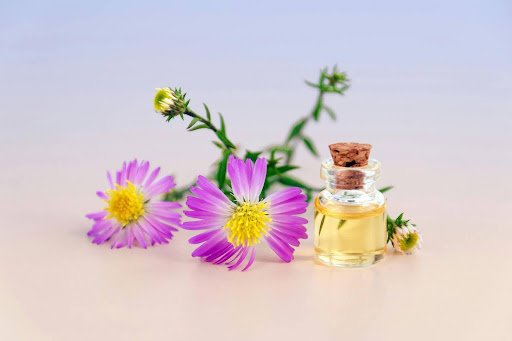Perfume Rituals: How Different Cultures Use Fragrance in Daily Life
Perfume has woven itself into the tapestry of human history, transcending cultures and generations. Beyond mere aesthetics, fragrances embody tradition, identity, and spirituality. From ancient civilizations to modern societies, the significance of perfumes has evolved, yet its essence remains unchanged. In this exploration, we delve into the diverse practices of different cultures, shedding light on the unique rituals and symbolism associated with aromatic fragrances.
Source: Diana
The Ancient Egyptians: Perfume as a Spiritual Offering
Perfume's significance in ancient Egypt dates back to 3000 BC. Egyptians revered fragrances as divine essences, considering them the sweat of the gods, forging a celestial connection. Used extensively in religious ceremonies, perfumes were offerings to honour deities and bridge the mortal realm with the divine. The iconic Kyphi, a blend of myrrh, juniper, and aromatic herbs, was central in rituals, symbolizing the profound spiritual connection associated with perfumes. Moreover, perfume symbolised status and wealth, often reserved for the elite and pharaohs, underscoring its importance in Egyptian society.
The French: Masters of Modern Perfumery
France stands as the bastion of contemporary fragrance, its roots tracing back to the 16th century when Queen Catherine de' Medici introduced perfume-making, laying the foundation for its luxurious reputation. Today, French perfumes epitomize elegance and prestige, with Grasse, the perfume capital of the world, crafting some of the most exquisite scents. Perfumes are deeply integrated into French culture, seamlessly woven into daily life, from personal grooming rituals to enhancing the ambience of homes.
The Middle East: Perfumes as a Symbol of Hospitality
In Middle Eastern cultures, perfumes hold a revered place, symbolizing hospitality and honour. Oud, a resinous wood with a rich, intoxicating scent, is deeply embedded in regional traditions. Perfumes aren't merely adornments; they're gestures of goodwill, often offered to guests as a mark of respect. This practice underscores perfumes' cultural significance in fostering social bonds and expressing generosity.
The Japanese: Subtlety and Serenity in Fragrance
Japanese culture reveres subtlety and mindfulness, reflected in their approach to fragrances. The traditional art of Kodo, or "the way of fragrance," involves experiencing incense aromas in a meditative and serene manner, transcending mere olfactory pleasure. Kodo ceremonies offer a sensory journey, allowing participants to immerse themselves in the nuanced layers of fragrance, deepening their connection to the present moment.
Source: Dhanno
The Indian Subcontinent: Aromatics in Rituals and Remedies
In India, perfumes intertwine with religious and medicinal practices, ingrained in the fabric of daily life. Ayurveda, the ancient science of holistic healing, incorporates aromatic oils and herbs for their therapeutic properties. Fragrances like sandalwood, jasmine, and rose feature prominently in Hindu rituals, symbolizing purity and devotion. Perfumes infuse traditional ceremonies, infusing spaces with auspiciousness and joy.
The Chinese: Fragrance as an Art Form
China's rich history embraces fragrance as both a cultural and artistic expression. Perfumes, derived from flowers, herbs, and spices, are deeply intertwined with traditional medicine and spiritual practices. Incense burning purifies spaces and minds, fostering balance and harmony. Aromatic sachets, carried for personal scent, are believed to ward off diseases, while perfume pouches symbolize good fortune and protection.
The Greeks and Romans: Perfume in Daily Elegance
Ancient Greeks and Romans viewed perfumes as essential for enhancing beauty and health. Bathing rituals infused with fragrant oils were commonplace among the elite, embodying luxury and sophistication. Public ceremonies and social gatherings were steeped in exotic fragrances, signifying status and refinement.
The Indigenous Peoples of the Americas: Nature's Fragrances
Indigenous cultures in the Americas have long revered nature's fragrances, utilizing plant-derived scents in spiritual and healing practices. Smudging ceremonies, involving burning sage and cedar, purify spaces and minds, fostering a connection to the spiritual realm. These natural fragrances are integral to cultural ceremonies, dances, and traditional rites, highlighting the profound relationship between indigenous peoples and the natural world.
Source: Maryfee
Modern Trends: Perfume Monthly Subscription Services
In the contemporary landscape, perfume subscription services offer an avenue to explore a myriad of scents conveniently. These curated subscriptions deliver a variety of fragrances to your doorstep, allowing for an ongoing exploration of new favorites and olfactory experiences.
The Timeless Allure of Perfume
Perfumes have etched themselves into the annals of human history, transcending their role as mere fragrances. They serve as vessels of cultural heritage, spiritual beliefs, and social customs across the globe. From ancient rituals to modern innovations, perfumes continue to enrich our lives, offering a sensory journey that resonates with tradition, memory, and identity. As we celebrate the diverse practices of perfume rituals, we embrace the essence of cultural heritage and let fragrances imbue our daily lives with enchantment and meaning. Whether through traditional customs or contemporary trends, the allure of perfume remains timeless, inviting us to savor its intoxicating embrace.
_
Esmé Gelder is a skincare and fragrance enthusiast who believes a good scent can make everyday moments magical.






